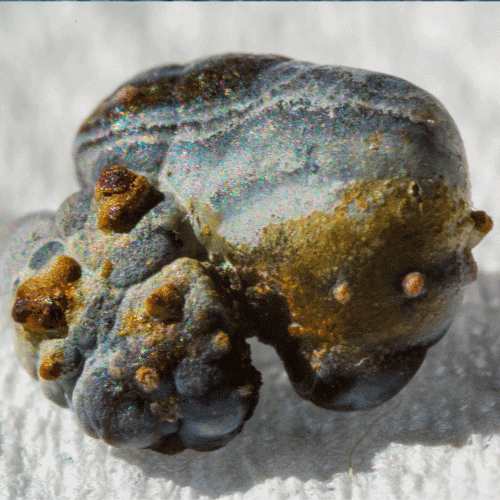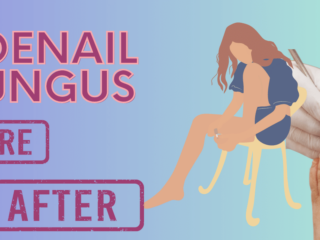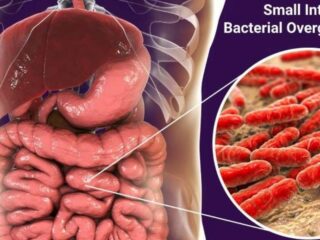Having kidney stones can be a real bummer and quite an inconvenience. The intense cramping pain in the back and side can disrupt your day and affect your health and productivity. Flushing them out with beverages is often the first thing we do, but does beer help with kidney stones? Let’s find out here:
Does Beer Help With Kidney Stones?
A study published in the Clinical Journal of the American Society of Nephrology found that consuming beer in moderation (along with tea, fruit juices, etc.) is associated with a lower risk of getting kidney stones than drinking sweet and sugary drinks, which posed a higher risk.Â
But before you chug down that beer bottle, let’s discuss some of the facts first:Â
Like most alcoholic beverages, beer is a diuretic, and while it does cause dehydration, it also helps you produce lots of urine. Urination, in turn, can flush out small stones (less than 5mm) from the kidneys before they get bigger.
But suppose you take beer when you can’t pass urine; it can actually worsen the situation because the beer will produce more urine you can’t expel, thus making it very painful. Drinking too much beer can cause high oxalates to form and dehydrate you more in the process. Eventually, it may also cause liver damage.Â
In short, drinking beer might not be the best idea to flush out kidney stones.Â
What Are Kidney Stones?

Kidney stones are crystal deposits that form in the kidneys. These form when your urine contains more crystal-forming substances such as calcium, oxalate, and uric acid. The fluid in your urine can then dilute. At the same time, your urine may lack substances that prevent crystals from adhering together, creating an ideal environment for kidney stones to form.
The kidney stones can be of various colors and sizes, and passing them while urinating can be extremely painful. There are various types of stones, namely:

- Calcium stones – Calcium oxalate is the most common form of kidney stones around. Oxalate is a substance made daily by your liver or absorbed from your diet. Certain fruits and vegetables such as cranberries, beets, spinach, nuts, and chocolate have a high amount of oxalate.
- Struvite stones – Struvite stones are a type of kidney stone made of magnesium ammonium phosphate (MgNHPO4·H2O). They are also referred to as “infection stones” because they often form in response to urinary tract infections.
- Uric acid stones – Uric acid stones occur due to excessive uric acid in the body, leading to small stones forming, which can cause pain when you pee, where in some cases, blood also appears. Foods rich in purine like red and organ meats, beer/alcoholic beverages, and shellfish often spike uric acid levels in the body.
- Cystine stones – Cystine stones are a type of kidney stone made from a chemical called cystine, an amino acid that leaks through the kidneys and into your urine. They are usually compact, partially opaque, and have an amber-like or yellowish color.
What Causes Kidney Stones
Although several factors may increase your risk, there is no definite, single cause as to why kidney stones form. The following are the more common causes.
- Heredity – If someone in your family has had kidney stones, chances are high that you’re likely to develop them at some point. Studies show that kidney stones tend to develop more frequently in individuals with family histories than those without.
- Dehydration – Not drinking enough water daily can also contribute to the formation of kidney stones and urinary tract infections, both of which can lead to kidney damage if not treated quickly. Kidney stones form less easy when you have enough water to prevent stone-forming crystals from sticking together.
- Diet habits – People who eat a high protein, high-sodium (salt), and sugar diet have an increased risk of developing some types of kidney stones. Too much salt in a diet increases the amount of calcium the kidneys need to filter. On the other hand, excessive protein reduces levels of urinary citrate, the chemical in urine that stops stones from forming.
- Obesity – Having a high body mass index (BMI), obesity, and weight gain have been linked to an increased risk of developing kidney stones than those weighing less than 150 pounds. Studies also found that the magnitude of the increased risk may be greater in women than in men.
- Various diseases – According to a study, digestive conditions like Crohn’s disease, gastric bypass, and inflammatory bowel disorder can cause changes in the digestive process that affect your absorption of calcium and water, increasing the amounts of stone-forming substances in your urine. Primary hyperparathyroidism and gout have also been linked to an increased risk of kidney stone formation.
Repeatedly having urinary tract infections also can increase your risk of getting kidney stones.
- Taking supplements and medications – A 2013 study on men found that those who frequently took vitamin C supplements experienced double the rate of kidney stones. Similarly, excessive use of laxatives can also increase the risk of kidney stone formations.
Overall, when taken without consultation with your physician, improper use of medications can result in liver damage.
How Does Alcohol Affect Kidney Stones?
Drinking alcohol has always been linked to liver and kidney problems, but there is no exact link between alcohol intake and kidney stones. However, alcohol can still result in some side effects which contribute to stone formation.
- Dehydration – Alcoholic beverages can dehydrate you. Studies show that as a diuretic, alcohol causes the body to remove fluids from the blood through the renal system, including the kidneys, causes changes in the function of the kidneys, and may lead to kidney stones forming due to alcohol-induced dehydration.
- Weight gain – According to the findings of one study, drinking alcohol more than seven times a week increases the risk of weight gain. Drinking alcohol also means you are getting a lot of empty calories – almost seven calories a gram – as much as pure fat, letting you gain more pounds.
- Uric acid content – Alcoholic beverages, particularly beer, are high in purines, which are the building blocks of uric acid. Purines can lead to uric acid kidney stones forming, and beer could exacerbate problems with high purine levels.
- Gout – Excessive alcohol drinking can increase the risk of getting gout and triggering gout attacks, again due to the purine content of the alcoholic beverage. People with gout are also at risk of getting kidney stones.
More Effective Beverages For Kidney Stones
With beer out of the question, there are other ways to relieve, flush out, and prevent kidney stones:
- Drink lots of water – A great way to flush out kidney stones is to drink at least 2 liters of water to help flush out smaller stones. Once the stone passes, you should continue the regimen until the stones clear out.
- Apple cider vinegar – ACV contains acetic acid, which is thought to soften, break down, and dissolve kidney stones, making them easier to pass through urine.
- Basil juice – Basil juice is another home remedy for kidney stones. It contains acetic acid and antioxidant properties, which break down the stones and keeps the kidneys healthy.
- Lemon juice – Lemons contain citrate, which prevents calcium oxalate stones from forming. It can also break down small stones, allowing them to pass easily with the urine.
Takeaway
Kidney stones happen due to many factors like diet habits, dehydration, and health conditions. While it can be painful and uncomfortable to bear with, several different treatment options are available.
When choosing a beverage, water is still the best for clearing out the stones. Other healthier options like lemon, basil, and apple cider vinegar help break down the stones, making them easier to flush out.
But before chugging down any beverage, you should consult your doctor first if you think you have kidney stones. That way, you can discuss the best treatment options to facilitate faster recovery.
Disclaimer: this article does not constitute or replace medical advice. If you have an emergency or a serious medical question, please contact a medical professional or call 911 immediately. To see our full medical disclaimer, visit our Terms of Use page.








